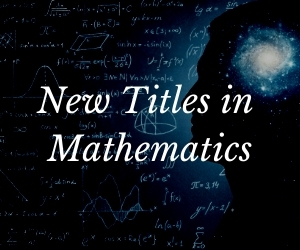System Upgrade on Tue, May 28th, 2024 at 2am (EDT)
Existing users will be able to log into the site and access content. However, E-commerce and registration of new users may not be available for up to 12 hours.For online purchase, please visit us again. Contact us at customercare@wspc.com for any enquiries.
Dedicated to the memory of the late Professor Zbigniew Oziewicz from Universidad Nacional Autónoma de México, the book consists of papers on a wide variety of topics related to the work of Professor Oziewicz, which were presented at the special conference on Graph-Operads-Logic (GOL 2021), selected through peer review to promote his scientific legacy.
Professor Oziewicz was a great enthusiast and supporter of category theory and its applications in physics, as well as in various areas of mathematics (topology, noncommutative geometry, etc.). In particular, he made significant contributions to the theory of Frobenius algebras, which now are becoming more important due to their connection with topological quantum field theories that are used in mathematical physics and in quantum topology. Professor Oziewicz was a great and very generous teacher, who immersed his students in the beautiful ideas of category theory as well as mathematical physics and computation. It was his idea to start a series of conferences under the title Graphs-Operads-Logic, most of them held in Mexico, with some of them in the USA, which were a great platform to discuss various ideas connected with category theory and its various applications, and to make friends with other scientists. Despite his passing, the GOL 2021 conference is included in this series to pay tribute to his many contributions to diverse areas of science.
The book is laid out in twelve main topics where we can find relevant works from distinguished experts.
Sample Chapter(s)
Preface
Chapter 1: Zbigniew Oziewicz's Biographical Notes
Contents:
- Influence and Inspiration, Zbigniew Oziewicz in Mexico:
- Zbigniew Oziewicz's Biographical Notes (Jesús Cruz Guzmán)
- Einstein's Composition of Velocities as a Nonassociative Algebraic Structure and the Underlying Geometry of Symmetric Spaces of E Cartan (Larissa Sbitneva)
- Didactic Experiences with the Moodle for Critical and Creative Thinking (Hilda M Colin Garcia, Larissa Sbitneva and Zbigniew Oziewicz)
- Category Theory, Graphs, Logic:
- A Construction for Clifford Algebras (Louis H Kauffman)
- Exponential of Endomorphism with Minimal Polynomial (Jerzy Cisło, Zbigniew Oziewicz, and William S Page)
- Mathematics and Physical Meaning in Relativistic Quantum Mechanics (Peter Rowlands)
- Theory of Relativity:
- Composition of Relativistic Velocities: Algebraic Loop Deformation and Geometry (Jerzy Kocik)
- Evolution Equations of Relativistic Dynamics Along Geodesic Lines of Hyperbolic and Elliptic Spaces (R M Yamaleev)
- Relative Binary and Ternary Four-Dimensional Velocities in the Special Relativity in Terms of Manifestly Covariant Lorentz Transformation (Grzegorz Marcin Koczan)
- The Space–Time Theories Exploratorium (Mariana Espinosa)
- Classical Relativity and Quantum Relativity Versus Special Relativity: Meditations on the Trails of Zbigniew Oziewicz (Romuald Brazis)
- Non-commutative Geometry, Differential Calculus:
- Quantum Calculi: Differential Forms and Vector Fields in Non-commutative Geometry (Andrzej Borowiec)
- Zbigniew Oziewicz's Differential Calculus with a Classical Thermodynamics Point of View (Dalia B Cervantes Cabrera and Jesús Cruz Guzmán)
- Abstract Algebra, Non-commutative Calculus:
- Binary Lie Algebras with Identities (Alexander Grishkov, Marina Rasskazova and Liudmila Sabinina)
- Kepler Problem, Lorentz Transformation, and Jordan Algebra (Guowu Meng)
- On the Leavitt Path Algebras of a Class of Random Graphs (Guadalupe Rafael Molina Rincón)
- Homology, Dualities, Manifolds:
- Homology of Small Categories and Khovanov Homology (Jozef H Przytycki and Jing Wang)
- The Golden Ratio, Variational Principles, Cyclic and Wave Phenomena, and Quanta (Giovanni Pietro Gregori, Christopher Walter Monckton of Brenchley, Willie Soon, Roger Tattersall, Arnaldo D'Amico, Giovanna Zimatore, Victor Manuel Velasco Herrera, Bruce Allen Leybourne, and Zbigniew Antoni Oziewicz)
- Some Categories of Alexandroff Spaces (Juan Antonio Pérez and Marlem Elizabeth Solís Santana)
- Parametric Hopf Adjunctions and Monads (Adrian Vazquez-Marquez)
- Visible and Invisible States: An Algebraic and Philosophical Investigation on the Relation between States and Observables (Enrique Bojorquez Gallardo)
- Lie Group Symmetry, Quantum Group Symmetry:
- SU(n) and Quantum SU(n) Symmetries in Physical Systems (Hanna Makaruk)
- Projective View on Motion Groups II: A Quest for Rational Geometries (Danail Brezov)
- Clifford Algebra, Spheroidal Quaternions:
- Spheroidal Quaternions and Symmetries (Garret E Sobczyk)
- Special Affine Quaternion Domain Fourier Transform (Eckhard Hitzer)
- Topological Quantum Field Theories:
- Vortices, Knots, Chebyshev Polynomials, Frobenius Algebras, Topological Quantum Field Theories (Robert Owczarek)
- On Negative-Energy 4-Spinors and Masses in the Dirac Equation (Valeriy V Dvoeglazov)
- Yang–Mills–Scalar–Matter Fields in the Two-Point Space (Gustavo Amilcar Saldaña Moncada)
- Quantum Mechanics, Leptones, Quarks, Fundamental Interactions:
- Representation of the Anomalous Magnetic Moment of the Muons via the Novel Einstein–Podolsky–Rosen Entanglement (Ruggero Maria Santilli)
- The Standard Model of Elementary Particle Physics (Ricardo Gaitán and José Halim Montes de Oca)
- Computability, Models of Computation:
- Superdense Coding and Multiparty Communication Protocols Using Quantum Systems of Several Levels (Guillermo Morales-Luna)
- Computable Isomorphism Problem (Valentina Harizanov)
- Quantum Lie Operations, Geometric Algebra:
- Generating Function for Quantum Hyperbolic Planes (Micho Đurđevich and Perla Cecilia Lucio Peña)
- Weak Gravitational Fields in the Geometric Algebra Approach (David Antonio Pérez Carlos, Augusto Espinoza Garrido, Alejandro Gutiérrez Rodríguez, and Zbigniew Oziewicz)
Readership: Academia, university libraries, individual researchers, students (postgraduate and undergraduate), amateur enthusiasts of category theory and its applications in sciences, and humanities.





